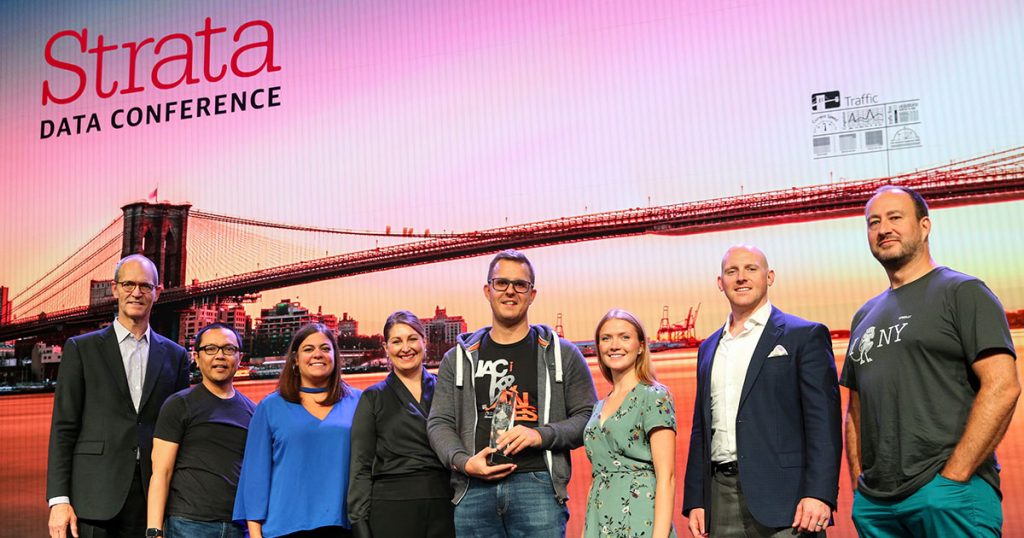I ended my last post about my startup journey and describing my feeling about how for about four years where I had an idea, wanted to build a product but lacked resources to do so. I want to talk about that journey a bit more before we get into the actual tech that we’re working on. As a shameless teaser, we had some amazing progress on Friday and I’m really excited to start showing people, but you’ll have to wait… 🙂
Anyway, as I mentioned in the last article, I had always admired startup culture, or at least what I thought it was, and wanted to be a part of it. I had the concept of this idea for a long time, and yet I knew I couldn’t do it by myself. My journey started when I was at Booz Allen. I had this idea, but didn’t really know how to bring it to fruition. Around this same time, I attended a conference in Barcelona which was pivotal to me for the next few years and ultimately led me to understand the motivations behind innovation, and why some companies are able to innovate and others not.
The talks I attended introduced me to the concept of intrepreneurship, which basically means being an entrepreneur within a large company. They examined organizations like Lockheed with their famous Skunkworks and discussed how some companies developed amazing technologies that would change the world, but had no idea how to capitalize on that. A great example of this was Xerox, which developed the graphical user interface, the mouse and other innovations that we take for granted in modern computing. Or Kodak, which developed some of the first digital camera technology. What happened? Well… Xerox is still making copiers and Kodak went out of business. On my way back from Barcelona, I did a lot of thinking and ultimately came to the conclusion that Booz Allen would never be able to foster real innovation because their business model did not allow for it.
Booz Allen is a consultancy, where for the most part, their money is made by selling billable hours to the government. If your measure of success is increasing the number of billable hours, and the cost of said billable hours, than anything which does the opposite of that will not be well received. In other words, any business which makes its profit by measuring time, will not be interested in efficiency. So, with this in mind, I approached my superiors at Booz and started some discussions about creating research groups that would develop products which we could sell. It turned out that such discussions were already underway and Booz ended up creating Dark Labs which was a way of encouraging more innovation and research. I was fortunate enough to move off of direct government work, and into Dark Labs where I could work on cyber security research projects.
After some time, I realized that while the notion of intrapreneurship was appealing, I still was getting a little tired of all the bureaucracy that exists in large companies and felt that if I was going to successfully build a product, it would have to be on my own or with a company that builds products. Around the same time, I was approached by another government contractor who shall remain nameless, that featured a startup incubator. Their premise was that they would recruit people who were currently working for the government, and support them in creating startups.
The Incubator
I’m a believer in the old adage that if you don’t have anything nice to say, don’t say it at all. With that said, I’m not going to say very much about the incubator in which I briefly participated. Knowing what I know now about these incubators, I would advise aspiring founders to stay the hell away from most of them. What you have to be very careful of with incubators is the amount of equity they ask for in exchange for relatively few resources. In other words, you’re selling a significant portion of your company for very cheap. I would wager that most first time founders, myself included, don’t really understand an appropriate price for your ideas.
The other flaw I found in this incubator was that it was not really allowing perspective founders to be “all in”. I’m not calling our company successful yet, but with the time I’ve spent so far, I can tell you that there is no way that any startup could possibly be successful if the founders aren’t 110% dedicated. This effort is all-consuming. In any event, I did not feel that participating with this particular incubator would be a recipe for success, so I decided to put my ideas on hold and leave.
The DC/Baltimore Startup Scene
At this point, even though I decided to put my ideas for a company on hold, I was still experimenting with the technology. I took a job at Deutsche Bank and was following the startup scene in the greater DC area, quietly looking for opportunities. What I was seeing in the DC/Baltimore was a lot of VCs offering investments in the high five to low six figure range. There also were a lot of “shark tank” type events where you could make your pitch and the “grand prize” was somewhere around 150k. My view of these events was that they seemed to be more focused on making the investors feel like big shots as opposed to actually helping companies.
Over the years, I did have some intro conversations with DC based VCs and I noticed that they either didn’t take me seriously or didn’t seem to understand the value of what I was proposing. Now, you could interpret this as me not selling myself well, but in every conversation I had, there was a serious disconnect between me and the person to whom I was speaking. I described it to many people as if I showed you a fruit and told you all the health benefits of said fruit, that it tastes good and is inexpensive and the response was: “Why would I want a chair like that?”. This all changed when I met Todd.
Mentee meets Mentor
By now it was early 2020 and I had pretty much resigned myself to attempting to bring my ideas to fruition through my regular job. However, I was doing some private consulting work for Todd who had recently launched a company called EraDB. Todd was a two time founder, and on a whim, I asked him if he’d “mentor” me with respect to venture capital, to which he agreed. To make a long story short, Todd understood my idea and loved it immediately. He taught me a lot about how VCs work with early stage ideas, the money involved and helped me craft a pitch deck. He also offered to introduce me to his investors.
Todd and I spent a few weeks with me working on a pitch deck, and finally after several weeks, we had something that looked presentable and then COVID hit… Stay tuned for the next update!



[…] my last post about startup life, I wrote about trials and tribulations around getting funding here in the DC area and how I met my […]